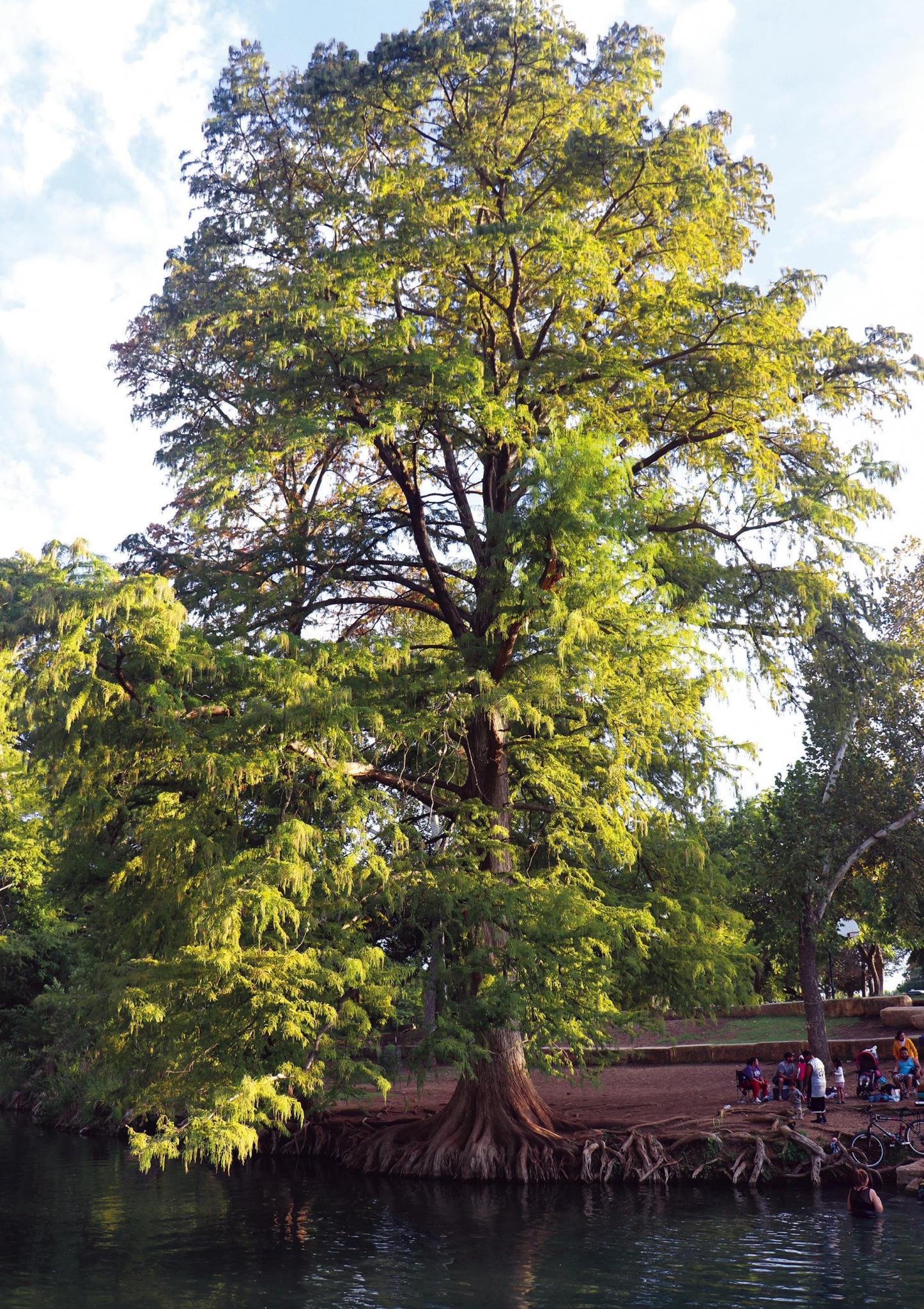
A stately cypress provides shade to a picnicking family on the banks of the San Marcos River near Rio Vista Dam.
Photo by Jason Cook
Thank a Tree
Nov. 3 is Arbor Day in Texas. We should make this one of the most important days on the calendar because our quality of life depends upon it. Our local trees and forests have been through several years of unusual freezes, ice storms, insect infestations (Oak Wilt), drought and wildfires. The resulting destruction cannot be completely tallied until future research is completed.
However, the results of the 2011 drought offer an indication. Statistics from the Texas A&M Forest Service and Urban Forestry show that in 2011, 301 million trees in forested plots died and 5.6 million trees in urban areas. Moreover, since January 2023, 165,837 acres of forest have burned in Texas. This must be added to the thousands of acres cleared for construction or paved in concrete. Globally 2,400 trees are cut down every minute. In 2020 alone, 25.8 million hectares (a hectare is 2.47 acres) of forest were lost.
Trees have a valuable part to play in reducing air pollution. Studies from 2010 revealed trees in the United States removed 17.4 million tons of air pollution. Thirteen years later, we have more air pollution and climate warming but fewer trees. Trees not only help us to have clean air, but they also protect soils from erosion, provide habitat for wildlife, increase property values and are a source of food and medicine.
Trees have a significant impact on temperature and can cool an urban area in some cases by 10 degrees. Shade from trees reduces energy use by decreasing the demand on air conditioners (remember the ERCOT threats of blackouts this summer). Trees filter storm water and improve the water quality of water tables and aquifers.
What can an individual do to save this invaluable resource? Two things: conserve water and plant more trees. Neither is hard or expensive. Most people know, no matter where they live, they could reduce their water consumption in many ways, recycle household gray water and reclaim rainwater. In addition, planting trees does not require special skills or exorbitant expense, only a little knowledge and planning. The website of the Texas A&M Forest Service (texasforestservice. tamu.edu) can answer most of the questions you may have about planting a tree.
Even if you do not have a yard, participate in tree planting in your community. Organizations like the Master Gardeners, Master Naturalists, Nature Conservatory, One Tree Planted, Tree-Nation and Arbor Day Foundation can suggest other ways to help. One possibility is to give a yearly donation equal to the cost of one tree.
Trees are our gift to the future.











